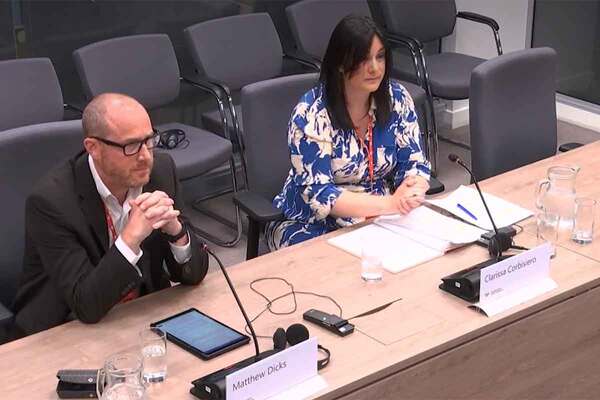You are viewing 1 of your 1 free articles
Court date set for tenants and landlords over compliance with Renting Homes (Wales) Act
Welsh housing associations are heading to court to seek clarity over their duties under the Renting Homes (Wales) Act amid claims they could be non-compliant for failing to provide copies of electrical safety certification, in a case that could cost the sector a significant sum.
A hearing date has been set for 18 and 19 July in which two landlords will seek clarification on whether they are in breach of a number of sections under the act, as well as two sections under the Renting Homes (Fitness for Human Habitation) (Wales) Regulations 2022.
The issue centres on whether tenants should be refunded rent because of the landlords’ failure to provide them with a physical confirmation of electrical safety certificates.
The claims in Cardiff’s business and property court will determine if they are in breach of the regulation and if so, what the consequences are.
The case could be significant as landlords may have to pay back rent to tenants for the period that the certificates were not issued, a figure that could run into millions of pounds.
Under the legislation, landlords are obliged to provide documentation to tenants after an electrical safety inspection has been carried out.
Tenants must be given an electrical installation condition report (EICR) within 14 days of the occupation date.
Renting Homes (Wales) Act, which was passed in 2016 and came into force in December 2022, brought about a significant shake-up of housing law in Wales.
Instead of bespoke contracts between tenants and private landlords, every tenant is now a signatory to one of two set contracts: a ‘secure’ contract for social tenants, or a ‘standard’ one for private renters.
Crucially, the act gives tenants new rights to challenge their landlords – even the right to withhold rent – if promises to rectify maintenance issues go unfulfilled.
Landlords must now ensure homes are fit for human habitation from the date the tenant moves in and for the duration of the contract, under Sections 91 and 94 of the act.
Requirements include carrying out an electrical safety test at least once every five years, as well as installing smoke alarms and carbon monoxide alarms, where there are gas or oil appliances.
“Where a landlord fails to do any of the above, in the times allowed, the dwelling will be unfit for human habitation,” according to the guidance.
The hearing this month will look to determine whether contract-holders who did not receive copies of the certificates are owed rent because the landlords were not compliant with the regulation.
Contracts usually contain a “supplementary term” stating a “contract-holder is not required to pay rent in respect of any day or part day during which the dwelling is unfit for human habitation”.
This term can be left out of the contract if both the landlord and the contract-holder agree.
A Welsh government spokesperson said: “We are taking this matter seriously and will continue to work with stakeholders to help reach a satisfactory outcome that protects the interests of landlords and contract-holders in Wales.”
The focus is largely on converted contracts – where residents were already tenants of a social landlord when the act came into force and electrical safety tests had already taken place.
For these tenants, there was a year’s grace period, meaning questions around non-compliance arise from December 2023 onwards.
In the private rented sector, it is less likely that the certification existed, which means that new certificates would have had to be issued.
Although Inside Housing understands that many certificates have now been issued and in most cases safety tests had already been carried out, the legal interpretation of the regulation still needs clarification.
“We are aware of a potential administrative issue relating to EICRs being provided to tenants whose tenancies converted under recent Welsh government legislation,” a spokesperson for Community Housing Cymru told Inside Housing.
“To be clear, this is not about whether a property has safe electrics, but whether an EICR has been provided to a tenant. Where tenants have not already received EICRs, these are now being issued. Housing associations take the safety of tenants very seriously,” they said.
Also under discussion is the issue of whether electrical safety certificates for communal areas and confirmation of electrical works should be given to tenants individually. The regulations currently state that contract-holders should be given written confirmation if investigatory or remedial work is carried out.
Both landlords have argued in court documents that they are not in breach of the contract and that late compliance with the regulation is possible.
Arguments against refunding rent focus on the unjust enrichment of tenants, because they were living in homes that were otherwise fit for human habitation, and the claim that withholding rent is intended to make landlords compliant rather than act as a retrospective punishment.
Benefits may also be affected as rent refunds might impact Universal Credit calculations. Inside Housing understands that the Welsh government is working with the Department for Work and Pensions to mitigate this.
Another potential issue for housing associations is whether they would be at risk of breaching their loan covenants with lenders if they were required to refund rent. Inside Housing understands providers have had to seek assurances from lenders that carve-outs will be possible.
Inside Housing recently spoke to Julie James, the Welsh government’s cabinet secretary for housing, local government and planning, about whether the Welsh Labour government can make good on its pledge to build 20,000 social homes by mid-2026.
Sign up for our Wales newsletter
New to Inside Housing? Click here to register and receive our Wales round-up straight to your inbox
Already have an account? Click here to manage your newsletters












